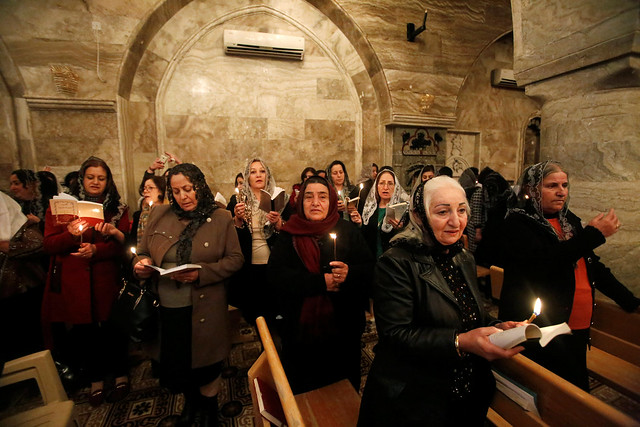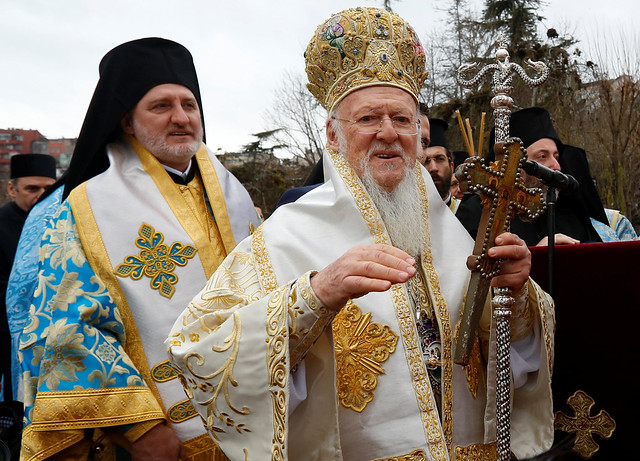ORTHODOX CHURCH TO CELEBRATE XMAS IN JANUARY,2019



very soon millions of Orthodox Christians around the
world will be celebrating Christmas, nearly three weeks after many people in
the West have already feasted and begun the New Year.
For countries including
Russia, Georgia, Armenia, Belarus, Serbia, Egypt, Ethiopia and Kazakhstan,
Friday, January 6 is Christmas Eve.
The difference is due to how Catholic and Orthodox Christians use different
calendars to mark the holy day.
Introduced by Pope Gregory XIII in
1582, the Gregorian calendar is the world’s widest used civil calendar and it
is this calendar that Catholic Christians use to celebrate Christmas on
December 25.
The calendar was
initially proposed to change the date of Easter so that it always falls near to
the spring equinox.
But Orthodox Christians
— excluding the Greek Orthodox Church — use the Julian calendar, implemented in
46 B.C. by Julius Caesar, which is a whole 13 days later.
The Greek Orthodox
Church in Greece, Cyprus and Bulgaria adopted the Gregorian Calendar in 1923.
The Orthodox in
Jerusalem also celebrate Christmas according to the Gregorian calendar.
Technically speaking,
Christmas in the Julian calendar still falls on December 25, whereas it falls
on January 7 according to the Gregorian calendar.
For Gregorian calendar Christians, January 6 marks
the day of the Epiphany – the day which celebrates the revelation of God in
human form as Jesus. It is also the day the three wise
men , following a star
in the desert night sky, appeared in Bethlehem at Jesus’ side following his
birth.
Starting on January 6,
Orthodox Eastern European Christians traditionally fast until the appearance of
the first star in the night sky symbolising the birth of Jesus.
It is traditional to
greet friends and family with “Christ is born!” and reply with “Glory to him!”
The Christmas Eve meal
is traditionally meat and alcohol-free. It usually consists of 12 dishes
symbolising the 12 apostles.
A must on this occasion
is “kutia”: a cold porridge-like dish made out of whole wheat, poppy seeds,
raisins, walnuts and honey. The rest of the meal varies but frequently includes
fried fish and beetroot soup made with vegetable stock, beans and cabbage.
Christmas Day, January 7,
starts with a visit to the church. Some Orthodox Christians prefer to go to a
midnight mass on Christmas Eve.
Christmas Day lunch comprises of a variety of
dishes with the centrepiece of a roast suckling pig or a goose.
Contrary to Catholic
Christmases, it is not customary to give presents in the Orthodox tradition.
Orthodox Christians usually hand out gifts on December 19, St. Nicholas Day, or
on New Year’s Eve – December 31.
Many Orthodox Christian
countries use the Gregorian calendar in their day to day lives but often revert
to the Julian calendar for their holy festivals.
The New Year, according
to the Julian calendar, is on January 13-14 and the day of the Epiphany,
celebrated on January 6 by Catholics, is celebrated by Orthodox Christians on
January 19.
On the day of the
Epiphany in the countries that adopted the Gregorian calendar like Bulgaria,
and Greece, priests will often throw crucifixes in rivers or lakes which the
faithful then dive into to retrieve.
.In Ukraine the period between January 6 and
January 19 is a time for “Vertep” – a street puppet theatre performance which
is a variation of the nativity play.
“Vertep” is accompanied by singing and dancing and
has links to pre-Christian traditions. In recent years it has become
increasingly popular with children to organise “Vertep” performances and raise
small amounts of cash.
No comments:
Post a Comment